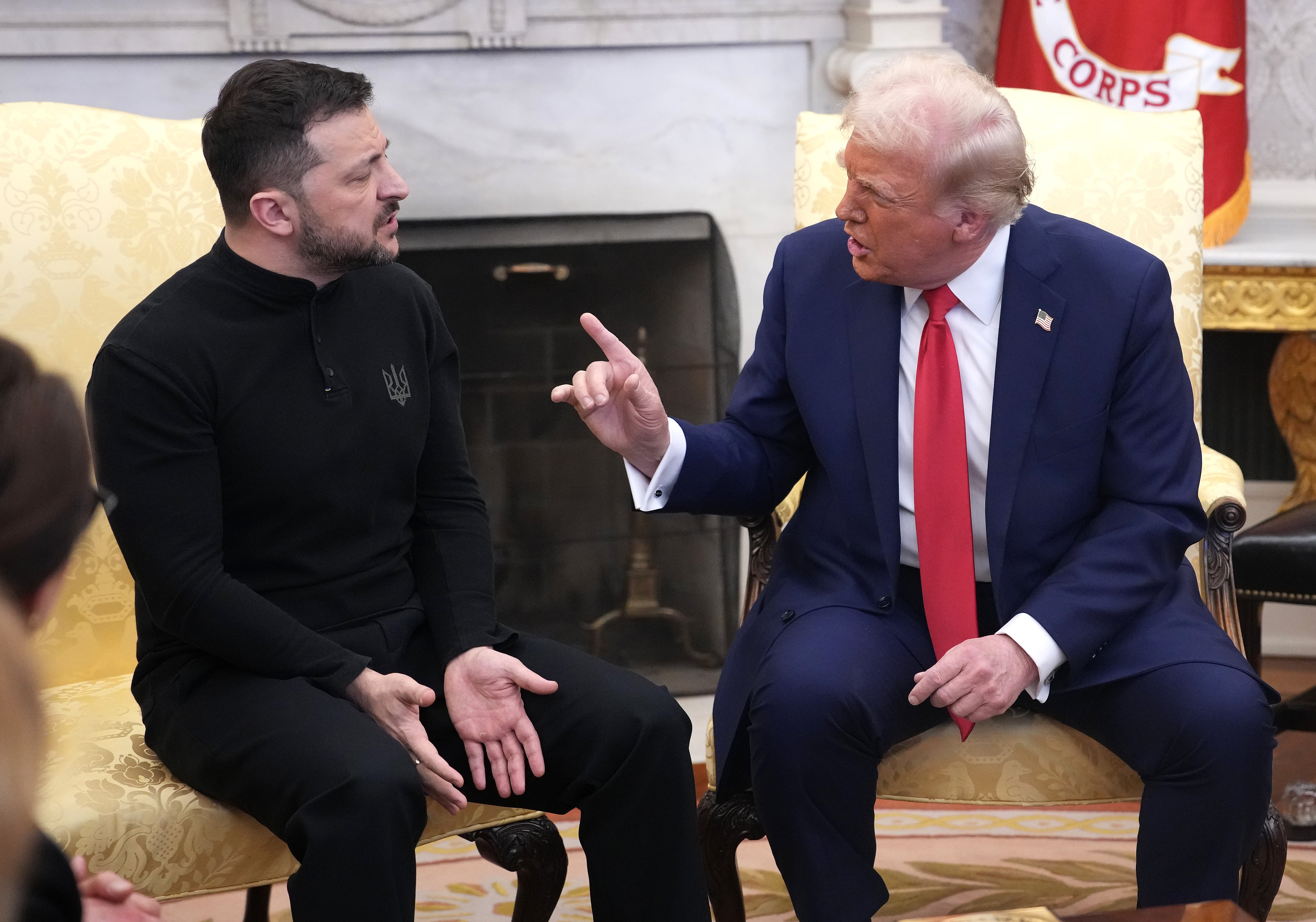President Donald Trump once accused Ukraine’s Volodymyr Zelensky of lacking “cards” to play in his country’s years-long fight against Russia, but now he’s paying far more attention to what might be in Zelensky’s hands.
In the wake of Ukraine’s brazen, and successful, attack on multiple Russian air bases over the weekend, Trump was reportedly left marveling at the ingenuity and sheer chutzpah of Kyiv’s counteroffensive using dozens of armed drones launched from trucks traveling deep inside Russia, swarming over military airfields across the country and raining down onto nuclear-capable long-range bombers.
According to Axios, Trump has privately described it as “strong” and “badass.”
One of the president’s advisers likened the audacious move to “a chihuahua inflicting some real damage on a much bigger dog.”
Dubbed Operation Spiderweb, by Ukrainian authorities, was carried out by the SBU, the secret service of Ukraine, and destroyed more than 40 such planes, a significant portion of Moscow’s strategic bombing capability.

Ukraine has claimed the attack — a homegrown operation in which drones were concealed in false compartments within lorry roofs, smuggled into Russia, then launched en masse simultaneously many thousands of miles apart – and many thousands of miles behind enemy lines — destroyed 41 Russian aircraft, causing $7 billion worth of damage to long-range bombers that carried the cruise missiles Putin has been using against Ukraine.
The president’s laudatory characterization of the Ukrainian attack on the Russian bombers tracks previous reporting by The Independent on Trump’s uncharacteristic silence in the days between the drone strikes and his call with Putin.
People close to him have suggested that worldview, forged in the days of Cold War-era nuclear tensions between the U.S. and the U.S.S.R., has long led Trump to Russia as a strong country and Putin as a strong leader — a “winner,” in his own parlance.
But the success of last weekend’s Ukrainian attacks may have — for now — positively influenced his opinion of Zelensky. Put simply, it’s because Ukraine’s success makes Moscow look less like a winner and more like the thing Trump hates above all else: a loser.
Still, Trump remains concerned about the long-term prospects for his push to get Kyiv and Moscow to hammer out a ceasefire agreement, something he promised to accomplish on “day one” of his presidency during last year’s campaign.
One source who spoke directly with the president told Axios that he “has concerns” about the chance that Putin will “go crazy in response.” And a U.S. official said the disabling of part of Moscow’s nuclear-capable bomber fleet has pushed things to “a very dangerous point” and has Trump worried that such attacks will “prolong the fighting.”
“He wants the fighting to stop, so it disappoints him whenever there is an attack like that,” they said.


